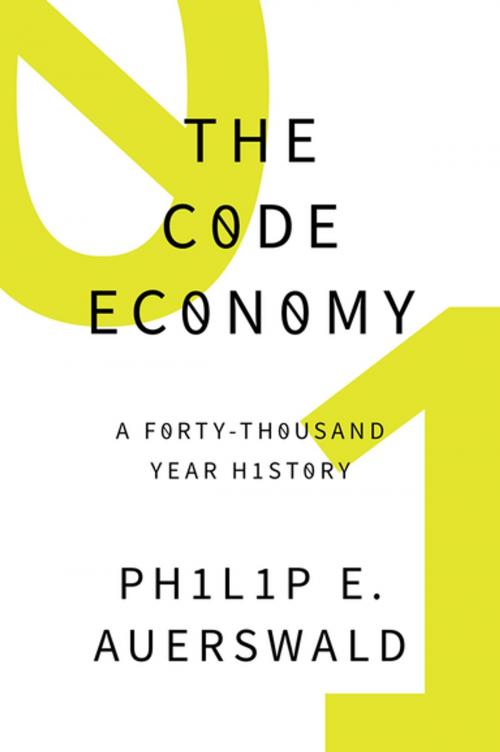The Code Economy
A Forty-Thousand Year History
Business & Finance, Career Planning & Job Hunting, Labor, Nonfiction, Social & Cultural Studies, Political Science, Politics, Economic Policy, Economics| Author: | Philip E. Auerswald | ISBN: | 9780190226787 |
| Publisher: | Oxford University Press | Publication: | January 25, 2017 |
| Imprint: | Oxford University Press | Language: | English |
| Author: | Philip E. Auerswald |
| ISBN: | 9780190226787 |
| Publisher: | Oxford University Press |
| Publication: | January 25, 2017 |
| Imprint: | Oxford University Press |
| Language: | English |
What do Stone Age axes, Toll House cookies, and Burning Man have in common? They are all examples of code in action. What is "code"? Code is the DNA of human civilization as it has evolved from Neolithic simplicity to modern complexity. It is the "how" of progress. It is how ideas become things, how ingredients become cookies. It is how cities are created and how industries develop. In a sweeping narrative that takes readers from the invention of the alphabet to the advent of the Blockchain, Philip Auerswald argues that the advance of code is the key driver of human history. Over the span of centuries, each major stage in the advance of code has brought a shift in the structure of society that has challenged human beings to reinvent not only how we work but who we are. We are in another of those stages now. The Code Economy explains how the advance of code is once again fundamentally altering the nature of work and the human experience. Auerswald provides a timely investigation of value creation in the contemporary economy-and an indispensable guide to our economic future.
What do Stone Age axes, Toll House cookies, and Burning Man have in common? They are all examples of code in action. What is "code"? Code is the DNA of human civilization as it has evolved from Neolithic simplicity to modern complexity. It is the "how" of progress. It is how ideas become things, how ingredients become cookies. It is how cities are created and how industries develop. In a sweeping narrative that takes readers from the invention of the alphabet to the advent of the Blockchain, Philip Auerswald argues that the advance of code is the key driver of human history. Over the span of centuries, each major stage in the advance of code has brought a shift in the structure of society that has challenged human beings to reinvent not only how we work but who we are. We are in another of those stages now. The Code Economy explains how the advance of code is once again fundamentally altering the nature of work and the human experience. Auerswald provides a timely investigation of value creation in the contemporary economy-and an indispensable guide to our economic future.















